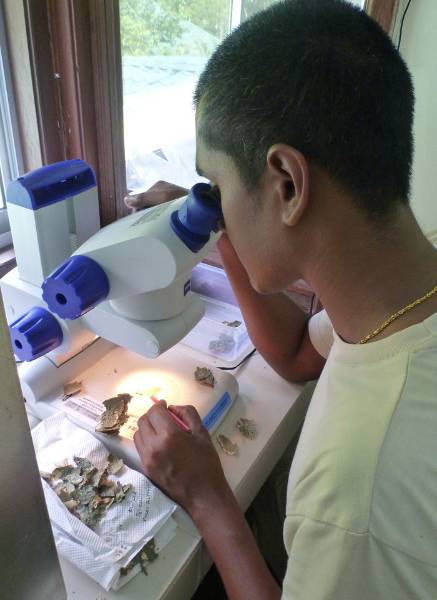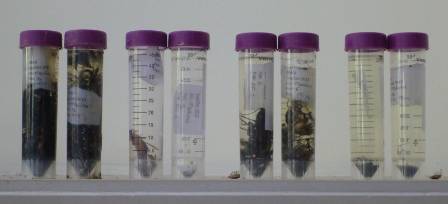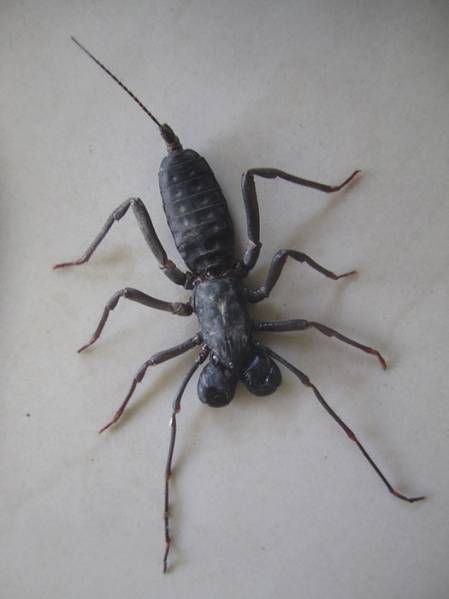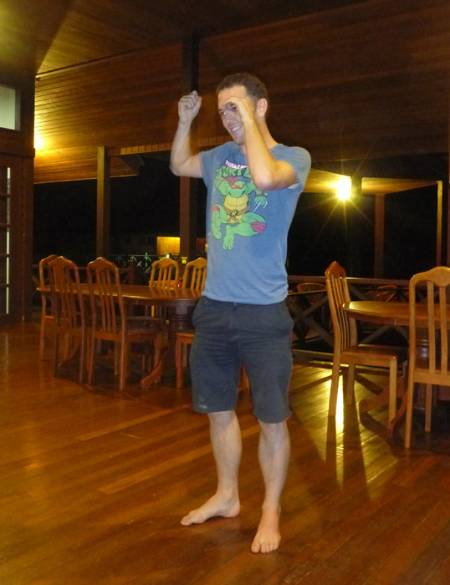Following an early start watching Hornbills yesterday and a late night linking live (via satellite) to the Museum in London, everyone was looking forward to a lie-in this morning….but no-one had explained this to the local Bearded Pigs. At about 5am there was a huge commotion with snorting and bellowing right outside our bunkhouse, goodness knows what about, but Kerry was the only person not to be woken by it!
A regular visitor to the Studies Centre, the Bearded Pigs are aptly named.
Today is our final day in Maliau and everyone has been busy packing and preparing for the journey to Kota Kinabalu, the capital city of Sabah. Not only do we need to worry about how everything will fit back in our suitcases/bags, the samples of invertebrates and lichens need to be carefully sorted and packed, to ensure they are not damaged on the long (inevitably bumpy) car journey tomorrow.
Lichens that are going to be used by Holger and Pat, who will identify and describe them, need to be carefully prepared and packed. I asked Pat how she goes about doing this…
The lichens will all be added to collections held at the Universiti Malaysia Sabah (UMS) and then those that require further study will be sent to the Natural History Museum (in London) for Pat and Holger to identify and where necessary describe new species to science.
Kishneth’s bark samples cover the floor of the laboratory, ready to be packed and transported back to Kota Kinabalu.
Meanwhile, the sections of tree bark and further (cross-referenced) samples of lichens will be analysed by Charles and his team of chemists, including Kishneth, at UMS and their chemistry studied.
Kishneth gets to grips with the intricate structure of some of the lichens the team have collected.
Keiron empties the containers that have been collecting material at the bottom of the Winkler bags.
Elsewhere, Dan, Kerry and Keiron have been emptying the final Winkler bags and gathering their various samples together. There’s a noticeable difference in the volume of material that the different traps have collected.
A ‘line-up’ of samples – a pair of Malaise trap samples on the left, SLAM traps, pitfall traps, and finally a pair of leaf litter samples on the far right.
The Malaise traps have been particularly successful in sampling a large number of forest invertebrates, while the pitfall traps have caught some of the larger specimens.
A Whip Scorpion found in one of the pitfall traps.
While walking towards the forest today for a final stroll beneath the mighty Dipterocarp trees, I couldn’t help but notice a small flowering plant on the side of the road. Particularly memorable because of what happens when you touch it….
The leaves of Mimosa pudica quickly fold inwards or droop when touched.
Mimosa pudica, while intriguing, shouldn’t be here. It is a species native to South and Central America, but is an invasive weed across much of the tropics. It seems incredible that such a small plant could have made it all the way from South America to the depths of Sabah in Borneo, and yet it’s not an uncommon tale.
We’re looking forward to a change of scenery when we get to Kota Kinabalu tomorrow but for now, with the closest village 2 hours drive away, games of cards and charades are the mainstay of our evening’s entertainment.
It’s a film…..four words….







